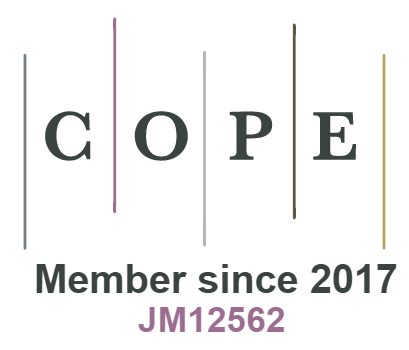Wage Digitization in Readymade Garment (RMG) Sector in Bangladesh is Crucial for Women Empowerment, Social Compliance and Competitiveness
DOI:
https://doi.org/10.18034/ei.v5i1.176Keywords:
Wage digitization, RMG, women empowerment, Bangladesh, social compliance, social competitivenessAbstract
Bangladesh has succeeded in achieving Millennium Development Goal (MDG) set by United Nations Development Program (UNDP), where Readymade Garment (RMG) sector has played an active role. As the highest contributor in export and formal sector employment RMG sector can claim its position at the top in, out of eight goals of millennium development, eradicating extreme poverty, achieving universal primary education, ensuring gender equality and women empowerment. Bangladesh is moving from least developed country to middle-income country. Bangladesh is on its way to achieving Sustainable Development Goal (SDG) set UNDP, where 17 areas have been targeted to fulfill. The government of Bangladesh has declared its vision 2021 and BGMEA, (Bangladesh Garment Manufacturers and Exporters Association) apex body of the industry has set a target of $ 50 ml export within that timeframe. To fulfill all those targets RMG has to play an important role. Though Bangladesh is in the second position regarding value, after China, in global apparel export, yet the difference between first and second is huge. Bangladesh’s RMG sector is far behind in efficiency and productivity levels compared to its competing countries. Bangladesh’s RMG is still highly dependent on low waged machine operators mainly females. The government has been working toward digitalization, and the sector is accommodating technology as without enhancement of a comparative and competitive advantage of this very sector, RMG, it is not possible to achieve the dreams of the apex body as well as of the government. Digitization of wage can help to ensure transparency, loss of working hours, implement compliance and women empowerment.
Downloads
References
Ahmed, N., Nasima, M., & Alam, N. (2013). Socio-Business Consideration of Garment Workers in Bangladesh: A Statistical Review. ABC Journal of Advanced Research, 2(2), 83-92.
Aktar, M. (2014). Green Insights of Textile Industry in Bangladesh: A Case Study on Mozart Knitting Ltd.. Global Disclosure of Economics and Business, 3(1), 93-108.
BGMEA (2014-2015). Members’ Directory, Bangladesh Garment Manufacturers and Exporters Association, Dhaka.
BKMEA (2014).Knit Barta: A three monthly publication of BKMEA. vol02, Description of Bangladesh Apparel Export pp 52-53, Bangladesh Knitwear Manufacturers and Exporters Association: Dhaka.
Chowdhury, M., Begum, M., Reza, M., & Jannath, T. (2013). Micro Credit and Women Empowerment: A Study on Grameen Bank’s Strategy of Poverty Alleviation. Global Disclosure of Economics and Business, 2(2), 209-224.
Chowdhury, S. (2015). The Necessities of HR practices in RMG Sector of Bangladesh. Global Disclosure of Economics and Business, 4(1), 7-20.
Chowdhury, S., & Rahman, M. (2014). The Potentiality of Women Entrepreneurs in Bangladesh with Special Reference to Sylhet Region. Global Disclosure of Economics and Business, 3(2), 121-130.
Dhaka Tribune, 02 July 2017, over 30m mobile banking accounts inactive, Business Desk. Shariful Islam, Dhaka.
Dhaka Tribune, 25 January 2017, Mobile bank users now over 40m, Tribune Business Desk. Dhaka.
Hossain, T., & Shirazi, H. (2018). Quality of Work Life among Women Employees Working in RMG Sector of Bangladesh. Global Disclosure of Economics and Business, 7(1), 27-40.
Masoom, M. (2017). The Control of Externality among the Street Children and Marginalized People of Dhaka City: A Key Indicator to Ensure Sustainable Livelihood. Asian Journal of Humanity, Art and Literature, 4(1), 17-24.
Tania, F., & Sultana, N. (2014). Health Hazards of Garments Sector in Bangladesh: The Case Studies of Rana Plaza.Malaysian Journal of Medical and Biological Research, 1(3), 113-120.
--0--
Published
Issue
Section
License
Engineering International is an Open Access journal. Authors who publish with this journal agree to the following terms:
- Authors retain copyright and grant the journal the right of first publication with the work simultaneously licensed under a CC BY-NC 4.0 International License that allows others to share the work with an acknowledgment of the work's authorship and initial publication in this journal.
- Authors are able to enter into separate, additional contractual arrangements for the non-exclusive distribution of the journal's published version of their work (e.g., post it to an institutional repository or publish it in a book), with an acknowledgment of its initial publication in this journal. We require authors to inform us of any instances of re-publication.









